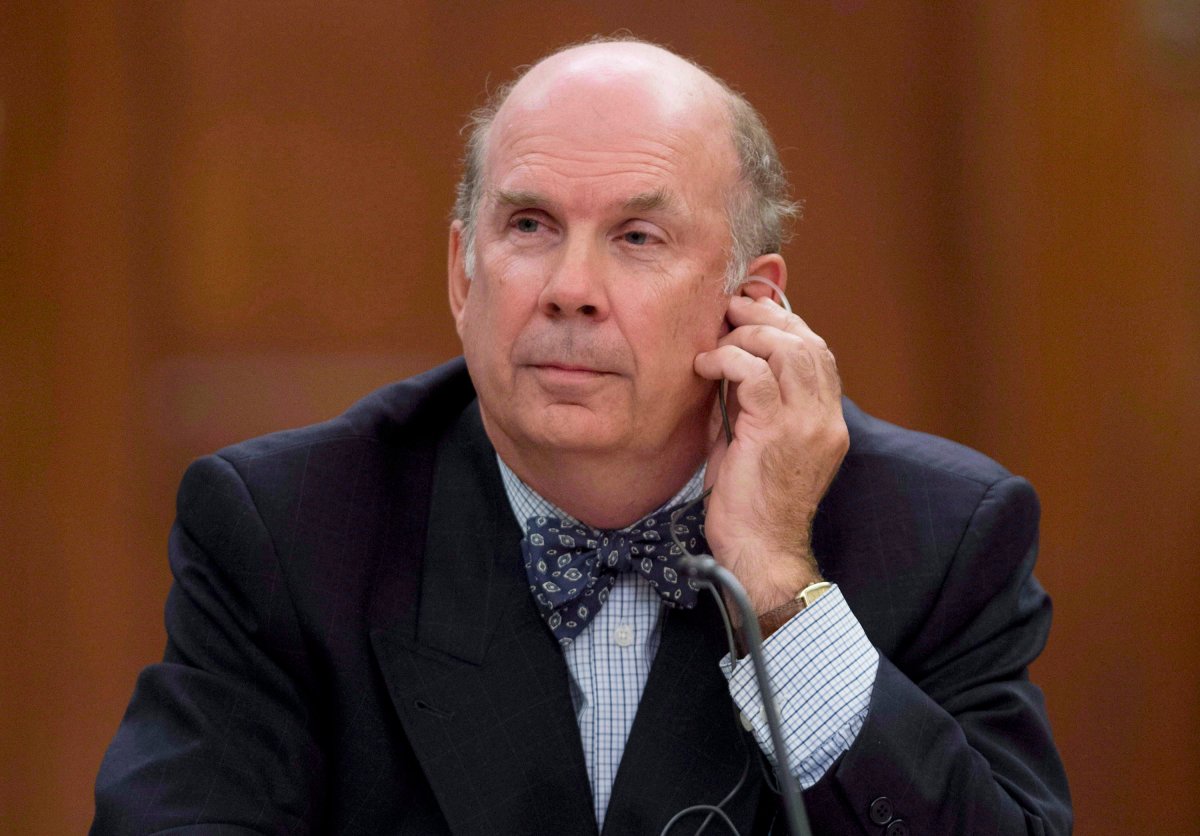OTTAWA – The Prime Minister’s Office says the Conservatives have no intention of changing the Constitution to allow federal court judges to be appointed as Quebec members of the Supreme Court, even as the Justice Department said it hasn’t yet decided.

But questions remain about why Prime Minister Stephen Harper apparently didn’t know the rules were different for Quebec judges until the Supreme Court struck down his appointment of Federal Court of Appeal Judge Marc Nadon.
Even though, as Global News reported, the Prime Minister’s Office suggested Nadon resign and join the Quebec bar prior to his appointment.
Liberal MP Stephane Dion asked the Justice Department whether the government will seek a Constitutional amendment to allow for the appointment of judges from the federal courts to take a Quebec seat on the top bench.
“No decision has been made on this issue,” the department said, in a response tabled Monday in Parliament.
But Harper’s spokesman said the government has no plans to open the Constitution.
Another document tabled Monday in response to a question from Liberal MP Irwin Cotler says Harper was first informed there was a different rule for the appointment of judges from Quebec on March 21.
March 21 was the day the Supreme Court ruled against Harper’s appointment of Nadon.
“Whether the Prime Minister sought, received or reviewed legal advice on this issue, apart from the legal opinion of the Honourable Ian Binnie, is a matter protected by solicitor-client privilege,” the document says.
NDP leader Thomas Mulcair, reading from a Supreme Court Act he pulled from his pocket after question period, said the blame lies on the shoulders of Justice Minister Peter MacKay for not informing his boss about the rules.
“This is black and white,” Mulcair said.
“It suffers no ambiguity. So for the prime minister to actually put in writing that he found out about Article 6 of the Supreme Court Act after the Supreme Court had ruled in Nadon, frankly says a lot more about Peter MacKay than it says about anything else. “
No ‘actual written’ opinion
The Conservative government sought at least one outside legal opinion on the Nadon appointment.
Retired Supreme Court Judge Ian Binnie agreed with the government that Nadon, a Quebec lawyer for 20 years before he became a judge, was eligible for the spot on the court because he had spent more than 10 years on the Quebec Bar.
Retired justice Louise Charron and constitutional expert Peter Hogg agreed with Binnie’s opinion and are oft cited in the government’s defence of the Nadon appointment.
But Charron and Hogg did not actually write anything down.
Charron “provided oral views” on whether a federal judge was eligible, while Hogg “was provided with a copy of the Justice Binnie’s opinion and asked whether he agreed with it or not.”
“Neither Justice Charron nor Professor Hogg prepared an actual written legal opinion,” it says, in response to Cotler’s question.
The opinions cost the government almost $12,000: Binnie was paid $6,605 for his work, while Charron was paid $4,325 and Hogg, $1,045.25.
Harper said in the House of Commons Tuesday that neither the NDP nor the Liberals, who sat on a selection committee, objected to naming either a federal court judge to the Supreme Court, or to naming Nadon.
“We have a ruling and a different set of criteria now before us, so we are acting within that criteria,” Harper said.
‘Woefully inadequate’
In March, the Supreme Court ruled that Nadon was not eligible to sit as one of three Quebec judges on the high court.
The court also ruled the Conservative government’s simultaneous attempt to amend the Supreme Court Act through its omnibus budget bill was unconstitutional and could not be enacted by Parliament alone.
The law says the three judges from Quebec must come from the Quebec Court of Appeal or the Superior Court of Quebec, or from among the lawyers of the province. The rules recognizes Quebec’s distinct legal system, governed by a civil code that serves as the general law for society.
The government’s changes to the Act would have allowed judges who were members of the Quebec bar for at least 10 years – but not necessarily current members – to be appointed.
WATCH: ‘I, personally’ did not ask Nadon to resign and join the Quebec bar, Peter MacKay says
On Tuesday, Liberal leader Justin Trudeau said he was disappointed in Harper’s handling of the Nadon appointment.
“It really is a disappointment to see the prime minister so woefully inadequate when it comes to picking people to sit on our Supreme Court,” Trudeau said.
“It undercuts the confidence that Canadians have in both the prime minister’s ability to govern responsibly around the big things, and our Supreme Court’s ability to make some very important decisions in the coming months.”
No money back guarantee
The documents tabled in Parliament also say the government will not return any of the $245,000 it cost to select and appoint Nadon to the court, nor any portion of his salary for the time he spent waiting for a decision about his appointment to be made.
“Taxpayers are not reimbursed for legitimate government expenditures incurred in good faith,” it says.
The documents also say there have been “informal discussions” with the Quebec government and members of the Quebec bar since the Supreme Court ruling in March.
A decision on who will replace the Quebec vacancy left by Justice Morris Fish, who retired last August, will be made “as soon as possible,” the document says.
“The government is considering all its options including the appointment of a replacement for Justice Fish at the earliest possible opportunity,” it says.
Another Supreme Court judge from Quebec, Louis LeBel, announced last week he will retire on November 30 this year, at the age of 75.
No “formal steps” have been undertaken to identify a successor for Justice LeBel, the government said in its response to Dion.



Comments